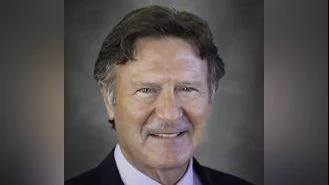Illinois State Representative Steven Reick | Representative Steven Reick (R) 63rd District
Illinois State Representative Steven Reick | Representative Steven Reick (R) 63rd District
On May 1, House Democrats filed House Floor Amendment 2 to Senate Bill 2412, titled “DCFS-CHILD WELFARE GOALS.” The amendment aimed to prevent political parties from slating candidates for the General Assembly after the March primary election if they had not participated in the primary. Previously, parties without official nominees for an elected office after the primary were given 75 days to slate candidates as official party nominees. This year, that deadline was June 3.
In a span of 48 hours, Democrats expedited SB2412 through both legislative chambers and sent it to Governor Pritzker, who signed it into law. This action ended the candidate nominating process while it was already underway—six weeks after the March 19 primary and about four weeks before the June 3 deadline.
The new law did not only apply to future elections but also prohibited slating candidates for this year's election, effectively changing rules mid-process. Critics argue that this move aims to reduce electoral challenges and limit voter options. Without the slating process, all candidates would need to declare their intentions a year before the General Election, benefiting incumbents by reducing accountability.
While applicable to both parties, Republicans were more affected as they planned to use traditional slating processes against Democratic incumbents. Governor Pritzker described the law as an "ethics reform" measure intended to ensure that only primary voters could choose party nominees for state legislative seats.
Republicans argued that the law constituted election interference by ensuring over 50 Democratic incumbents faced no competition in the fall elections. Fourteen Republican legislative candidates challenged the law in court seeking ballot access through slating.
Sangamon County Circuit Judge Gail Noll ruled that the law violated constitutional rights of voters and candidates. Speaker Welch appealed this ruling to the Illinois Supreme Court, asserting that judges lack authority over lawmakers' ability to change ballot access rules mid-cycle and emphasizing that only primary voters should nominate candidates.
On August 23, the Illinois Supreme Court issued an order indicating a deadlock on whether SB2412 infringed upon Republican candidates' and voters' rights. The decision expanded its scope beyond just those who joined in the original complaint but did not address substantive legal issues. Consequently, this voided SB2412's effect for this year's election while potentially allowing it in future cycles.
The Court noted recusals by Justices Neville and Cunningham led to a procedural deadlock among remaining justices (three Democrats and two Republicans), preventing a majority decision. The lower court's ruling thus stood by default.
This outcome allows more than a dozen Republican candidates onto November ballots, providing voters with choices otherwise unavailable.






 Alerts Sign-up
Alerts Sign-up